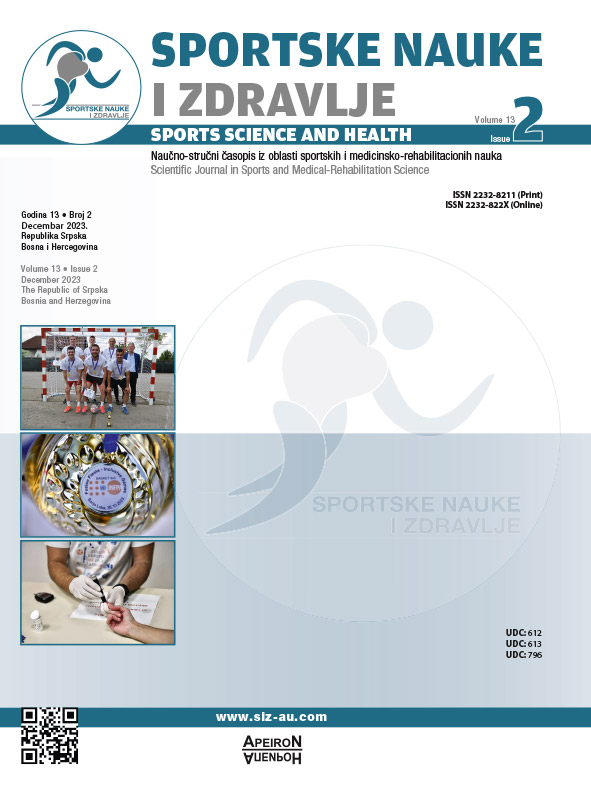Age as an Indicator of Sports Success
DOI:
https://doi.org/10.7251/SSH2302252TAbstract
This paper examines the relationship between age and sports success, exploring whether age can serve as a reliable indicator of an athlete‘s performance and achievements in various sports disciplines. The findings and insights presented in this paper can be beneficial to several groups, including sports coaches, talent scouts, sports psychologists, and researchers in the field of sports science. By understanding the role of age in sports success, these professionals can make informed decisions regarding talent identification, athlete development, and performance optimization. The paper initially reviews existing literature on the topic, analyzing studies that have explored the relationship between age and sports performance. It discusses both physiological and psychological factors that can influence an athlete‘s success at different stages of their career. Additionally, it examines the impact of age-related changes, such as declining physical abilities and increased injury risks, on an athlete‘s performance and longevity in sports. To improve this paper, several changes can be implemented. First, expanding the number of references and citations will enhance the paper‘s credibility and provide a broader perspective on the topic. By incorporating studies from different researchers and sources, the paper can present a comprehensive analysis of age as an indicator of sports success. Additionally, the paper can benefit from including more empirical research, moving beyond a review paper to incorporate original studies and data analysis. This would strengthen the paper‘s argument and contribute to the existing body of knowledge in the field. For other authors writing on the same topic, it is recommended to focus on the following areas for improvement. Firstly, ensuring a thorough review of the literature, covering relevant studies and research papers, will enhance the depth and breadth of the paper. Secondly, conducting original research or including empirical studies will contribute to the scientific understanding of age and sports success. This can involve collecting data from different sports disciplines, analyzing performance metrics, and evaluating the impact of age-related factors on athlete outcomes. So, this paper investigates the relationship between age and sports success, providing insights that can assist various stakeholders in the sports industry.
